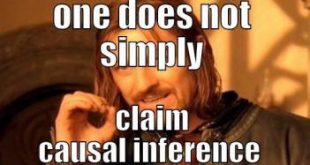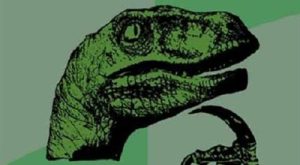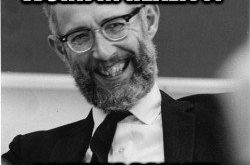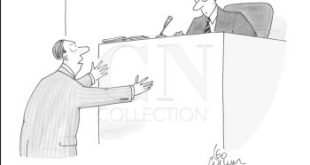Some methodological perspectives on statistical inference in economics Causal modeling attempts to maintain this deductive focus within imperfect research by deriving models for observed associations from more elaborate causal (‘structural’) models with randomized inputs … But in the world of risk assessment … the causal-inference process cannot rely solely on deductions from models or other purely algorithmic approaches. Instead, when randomization is...
Read More »Rational expectations — sheer nonsense
Rational expectations — sheer nonsense Expectations, since they are informed predictions of future events, are essentially the same as the predictions of the relevant economic theory. At the risk of confusing this purely descriptive hypothesis with a pronouncement as to what firms ought to do, we call such expectations “rational.” It is sometimes argued that the assumption of rationality in economics leads to theories inconsistent with, or inadequate to...
Read More »Rule of law
Till Fadime Sahindal, född 2 april 1975 i Turkiet, mördad 21 januari 2002 i Sverige Det är nu mer än femton år sedan som Fadime Sahindal bestialiskt mördades av anhöriga för att hon själv ville välja hur hon skulle leva sitt liv. Den typen av hedersrelaterat våld har ibland försvarats med — djupt förfelade — kulturrelativistiska resonemang där kulturella skillnader setts som en i något avseende förmildrande omständighet. Men — i Sverige har kvinnor och män samma värde. Och...
Read More »Economics — confusing mathematical masturbation with intercourse between research and reality
Economics — confusing mathematical masturbation with intercourse between research and reality There’s no question that mainstream academic macroeconomics failed pretty spectacularly in 2008 … Many among the heterodox would have us believe that their paradigm worked perfectly well in 2008 and after … This is dramatically overselling the product. First, heterodox models didn’t “predict” the crisis in the sense of an actual quantitative forecast. This is...
Read More »Hur står det till med ekonomerna?
Hur står det till med ekonomerna? Seminarium: Hur står det till med ekonomerna?De bommade finanskrisen. De skrev ut recept som förvärrade Greklandskrisen. De utgår från en människa som inte finns, och matematiska modeller som har väldigt lite med verkligheten att göra. Och de får bra betalt för jobbet. I nya numret av tidskriften Fronesis skärskådas den dominerande nationalekonomin, en vetenskap som har enorma anspråk, men som ständigt kommer till korta....
Read More »Dynamic programming — an introductory introduction
Dynamic programming — an introductory introduction [embedded content] Advertisements
Read More »Ett kilo mjöl
[embedded content] Advertisements
Read More »More NAIRU bashing
As yours truly argued in a post the other day, NAIRU does not hold water simply because it hasn’t existed for the last 50 years. But still today ‘New Keynesian’ (a monstrous misnomer) macroeconomists use it — and its cousin the Phillips curve — as a fundamental building block in their models. Why? Because without it ‘New Keynesians’ have to give up their (again and again empirically falsified) neoclassical view of the long-run neutrality of money and the simplistic idea of...
Read More »A critical realist perspective on evidence-based policies
A critical realist perspective on evidence-based policies [embedded content] Advertisements
Read More »Never seek to tell thy love (personal)
Never seek to tell thy love (personal) [embedded content] [h/t Eric Schüldt] Advertisements
Read More » Lars P. Syll
Lars P. Syll







